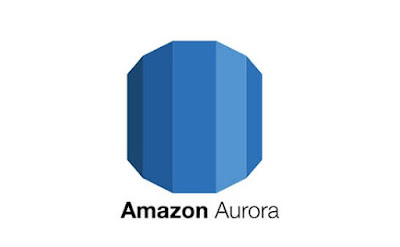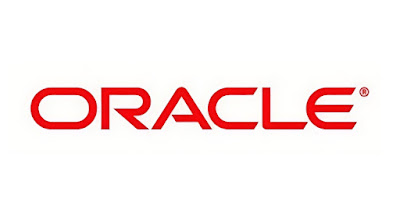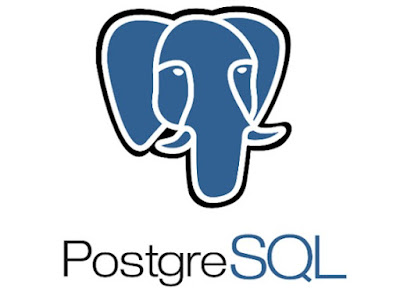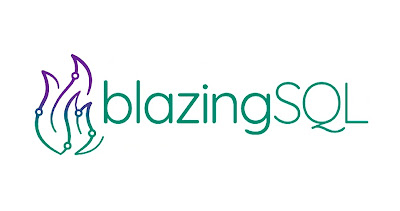The Top 13 Databases for Machine Learning and AI in 2023
ReviewsWelcome to our comprehensive guide to the best databases for machine learning and AI in 2023! If you're looking to dive into the world of machine learning and AI, selecting the right database is a critical first step towards success.
As machine learning and artificial intelligence become increasingly prevalent in today's technology landscape, the importance of selecting the right database for these applications cannot be overstated. In 2023, with the continued growth of these technologies, businesses and developers must carefully evaluate their database choices to ensure optimal performance, scalability, and security.
As the amount of data being processed continues to grow, so does the need for robust, scalable, and secure databases. Choosing the wrong database can lead to performance issues, security vulnerabilities, and ultimately, project failure.
That's why we've compiled an expanded list of the top 13 databases for machine learning and AI in 2023. Our selection process was rigorous and based on a variety of criteria, including performance, scalability, security, and ease of use. We wanted to make sure that our list includes only the best and top-rated databases.
So whether you're a data scientist, machine learning engineer, or AI developer, this guide is for you. It will help you make an informed decision and select the best database for your specific needs.
Without further ado, let's dive into our top-rated list of the best databases for machine learning and AI in 2023.
The Top 13 Databases for Machine Learning and AI in 2023
1. Google Cloud Bigtable
Google Cloud Bigtable is a distributed NoSQL database that provides highly scalable storage for large amounts of data. It is ideal for machine learning and AI applications that require high-speed data access and low latency. One of the key advantages of Bigtable is its ability to handle large volumes of data with ease. It also provides strong consistency, which is crucial for applications that require accurate data. However, its pricing model can be a bit complicated, and it may not be the best choice for smaller-scale applications.
Advantages of Google Cloud Bigtable:
- Highly scalable and can handle large volumes of data
- Strong consistency ensures data accuracy
- Provides low latency for fast data access
Disadvantages of Google Cloud Bigtable:
- Pricing can be complicated and may not be cost-effective for smaller-scale applications.
2. MongoDB
MongoDB is a popular document-oriented database that is ideal for machine learning and AI applications that require flexible data modeling. It is highly scalable and can handle large volumes of data with ease. One of the key advantages of MongoDB is its ability to handle unstructured data, making it a great choice for applications that require complex data structures. However, it may not be the best choice for applications that require strong consistency, as it uses eventual consistency by default.
Advantages of MongoDB:
- Flexible data modeling.
- Highly scalable and can handle large volumes of data.
- Great for handling unstructured data.
Disadvantages of MongoDB:
- Uses eventual consistency by default, which may not be suitable for applications that require strong consistency.
3. Amazon Aurora
Amazon Aurora is a cloud-based relational database that provides high availability and durability. It is highly scalable and can handle large volumes of data with ease. One of the key advantages of Aurora is its ability to provide strong consistency, making it a great choice for applications that require accurate data. It also provides excellent performance and is cost-effective, making it a popular choice among businesses of all sizes.
Advantages of Amazon Aurora:
- Provides high availability and durability.
- Highly scalable and can handle large volumes of data.
- Strong consistency ensures data accuracy.
- Excellent performance and cost-effective.
Disadvantages of Amazon Aurora:
- Limited compatibility with other database systems.
4. Oracle
Oracle Database is a widely-used and highly-regarded relational database management system. It provides a wide range of features for managing data and has been optimized for performance and scalability. One of the key advantages of Oracle Database is its strong security features, including encryption, authentication, and access controls. It also has a large community of developers and a wealth of resources available for support and troubleshooting. However, Oracle Database can be complex and expensive, requiring specialized skills and licensing costs. Additionally, some users have reported challenges with compatibility and integration with other tools and systems.
Advantages of Oracle:
- High scalability and reliability, making it suitable for large-scale applications
- Robust security features, including encryption, access control, and auditing
- Easy to integrate with other tools and platforms, including machine learning frameworks
- Wide range of data types and advanced data manipulation features
Disadvantages of Oracle:
- Expensive licensing and maintenance costs, making it less accessible for smaller organizations
- Requires significant expertise to set up and manage effectively
5. Microsoft Azure Cosmos DB
Microsoft Azure Cosmos DB is a globally distributed multi-model database that provides high availability and low latency. It is highly scalable and can handle large volumes of data with ease. One of the key advantages of Cosmos DB is its ability to provide multiple data models, including document, key-value, graph, and column-family, making it a great choice for applications that require multiple data models. It also provides strong consistency, making it a great choice for applications that require accurate data.
Advantages of Microsoft Azure Cosmos DB:
- Globally distributed and highly available.
- Highly scalable and can handle large volumes of data.
- Provides multiple data models, including document, key-value, graph, and column-family.
- Provides strong consistency.
Disadvantages of Microsoft Azure Cosmos DB:
- Can be expensive compared to other database systems.
6. PostgreSQL
PostgreSQL is a powerful open-source relational database management system that has been growing in popularity in the machine learning and AI communities due to its robustness, scalability, and support for a wide range of data types. Its advanced indexing system and support for custom functions make it an excellent choice for complex data analysis tasks.
Advantages of PostgreSQL:
- Offers a high level of scalability and can handle large datasets with ease.
- Provides advanced indexing capabilities for faster data retrieval.
- Supports a wide range of data types and is highly customizable.
- Has a large and active user community, ensuring frequent updates and support.
Disadvantages of PostgreSQL:
- Can be difficult to set up and configure, especially for those new to relational databases.
- Requires a high level of technical expertise to use effectively.
- May not be the best option for very large datasets or applications with high write requirements.
7. Apache HBase
Apache HBase is a distributed, scalable, and consistent database that is built on top of the Hadoop Distributed File System (HDFS). It is well-suited for big data use cases and offers excellent support for machine learning and AI applications. HBase's columnar storage format makes it particularly useful for storing sparse data, such as sensor readings or social media activity.
Advantages of Apache HBase:
- Provides excellent scalability and can easily handle very large datasets
- Offers support for sparse data and can handle complex data models
- Supports automatic sharding for improved performance
- Has a large and active open-source community, ensuring frequent updates and support
Disadvantages of Apache HBase:
- Requires a deep understanding of distributed computing and Hadoop ecosystem tools to use effectively
- Can be challenging to set up and maintain
- May not be the best option for small to medium-sized datasets or applications with high write requirements
8. Apache Cassandra
Apache Cassandra is a distributed NoSQL database that is designed for scalability and high availability. It offers excellent performance and is well-suited for big data applications that require high throughput and low latency. Cassandra's architecture is particularly useful for applications that require fast writes and real-time data analysis.
Advantages of Apache Cassandra :
- Provides excellent scalability and can easily handle very large datasets
- Offers high performance and low latency, making it well-suited for real-time data analysis
- Supports automatic sharding for improved performance
- Has a large and active open-source community, ensuring frequent updates and support
Disadvantages of Apache Cassandra :
- Can be challenging to set up and maintain, especially for those new to distributed databases
- Requires a deep understanding of NoSQL data modeling and query languages
- May not be the best option for applications that require complex queries or joins
9. MySQL
MySQL is a popular open-source relational database management system that is widely used for web applications and other software projects. While it may not offer the same level of scalability and performance as some of the other databases on this list, it is a reliable and user-friendly option for small to medium-sized machine learning and AI projects.
Advantages of MySQL:
- Easy to set up and configure, even for those new to relational databases
- Offers a wide range of features and is highly customizable
- Has a large and active user community, ensuring frequent updates and support
- Can be integrated with a variety of programming languages and frameworks
Disadvantages of MySQL:
- May not be the best option for very large datasets or applications with high write requirements
- May not offer the same level of scalability and performance as some of the other databases on this list
- Limited support for JSON data types, which may be important for some machine learning and AI applications
10. MLDB
MLDB (Machine Learning Database) is a powerful tool for storing and analyzing large datasets. It offers a range of features that make it an ideal choice for businesses and organizations that want to harness the power of machine learning. With its built-in support for popular machine learning libraries and frameworks, MLDB makes it easy for developers to build and deploy predictive models. It also offers advanced tools for data exploration and visualization, making it easy to discover insights and patterns in even the most complex datasets. MLDB's flexible architecture and support for multiple programming languages make it a versatile tool that can be used in a wide range of applications. Overall, MLDB is a reliable and efficient database that is well-suited for machine learning and data analytics.
Advantages of MLDB:
- Built-in support for a wide range of machine learning algorithms and models
- Easy to use, with a simple SQL-like query language
- Highly scalable and can be deployed across multiple nodes for better performance
- Open-source and free to use
Disadvantages of MLDB:
- Limited integration with other tools and platforms outside of the MLDB ecosystem
- Limited support for some advanced machine learning algorithms
11. BlazingSQL
BlazingSQL is a SQL engine designed for data scientists, analysts, and engineers to process massive amounts of data quickly and easily. It is a GPU-accelerated SQL engine that harnesses the power of NVIDIA GPUs to deliver unparalleled performance for data processing and analysis tasks.
BlazingSQL provides a familiar SQL interface that enables users to easily query and manipulate data using standard SQL commands. It supports all standard SQL functions, as well as user-defined functions, making it easy to perform complex data operations. With its advanced indexing capabilities, BlazingSQL can process large datasets faster than traditional CPU-based SQL engines.
Advantages of BlazingSQL:
- BlazingSQL's GPU acceleration enables lightning-fast query execution times, making it ideal for big data processing and machine learning workloads.
- It offers compatibility with popular SQL-based tools, including Jupyter, Python, and R, making it easy to integrate into existing workflows.
- BlazingSQL supports parallel processing, allowing for efficient and scalable data analysis.
- It offers advanced features such as distributed query processing, which enables query execution across multiple nodes for even faster results.
- BlazingSQL's cloud-based offering provides easy access to scalable computing resources without the need for on-premises hardware.
Disadvantages of BlazingSQL:
- BlazingSQL's GPU acceleration requires specialized hardware, which can be expensive and may require additional investment from organizations.
- The software is relatively new compared to other options in the market, which could lead to issues with stability and compatibility with certain tools.
- BlazingSQL's focus on SQL-based queries may not be suitable for organizations with more complex data needs or those looking to use non-SQL-based tools.
12. MindsDB
MindsDB is an open-source, autoML tool designed to simplify the machine learning process for non-technical users. Its intuitive interface and natural language processing capabilities make it easy to build, train, and deploy predictive models without the need for specialized technical knowledge. With MindsDB, users can quickly and easily integrate machine learning into their applications and decision-making processes. The tool also supports a wide range of databases and data sources, making it versatile and adaptable to various use cases.
Advantages of MindsDB:
- Easy to use and requires minimal knowledge of machine learning or coding
- Fast and efficient, with an intuitive interface for building and deploying models
- Open-source and free to use
Disadvantages of MindsDB:
- Limited support for complex machine learning tasks and models
- Limited scalability and performance compared to other databases.
13. Couchbase Database
Couchbase is a NoSQL document-oriented database that provides high scalability, high performance, and high availability. It supports key-value and document-oriented data models, which makes it ideal for modern, large-scale applications. Couchbase also offers flexible querying capabilities, strong consistency, and support for real-time applications. The database is built for enterprise applications, providing security, high availability, and disaster recovery features. With its native support for mobile platforms and seamless integration with other systems, Couchbase is a popular choice for mobile and IoT applications. However, its pricing can be quite high, and it may require a higher level of technical expertise to manage and optimize for specific use cases.
Advantages of Couchbase:
- Highly scalable and can be easily deployed across multiple nodes for better performance
- High availability and automatic data replication, ensuring data is always available
- Easy to use and has a flexible data model that allows for easy modification of schema
- Integrated support for mobile applications
Disadvantages of Couchbase:
- Limited support for complex queries and joins
- Requires a significant amount of memory for larger datasets
Comparison Of The Top 13 Databases for Machine Learning and AI
|
Database Tools |
Pros |
Cons |
Price |
|
Google Cloud Bigtable |
|
|
Starts at Nodes $0.65 per hour , with additional fees for Storage, Backups |
|
MongoDB |
|
|
Free to $57/ per month, depending on usage and support level |
|
Amazon Aurora |
|
|
Starts at $0.10 per GB-month, with additional fees for I/O |
|
Oracle |
|
|
Free and for Andvanced Contact Oracle for pricing information. |
|
Microsoft Azure Cosmos DB |
|
|
Starts at $5.84 / month, with additional fees for storage and I/O |
|
PostgreSQL |
|
|
Free and open-source, with enterprise support available for a fee. |
|
Apache HBase |
|
|
Free and open-source |
|
Apache Cassandra |
|
|
Free and open-source |
|
MySQL |
|
|
Free and open-source |
|
MLDB |
|
|
Free and open-source |
|
BlazingSQL |
|
|
Free and open-source |
Criteria for Evaluating Databases for Machine Learning and AI
When evaluating databases for machine learning and AI applications, there are several key considerations to keep in mind. These considerations include scalability, performance, security, and ease of use.
- Scalability - The ability of a database to scale effectively is crucial for machine learning and AI applications. As datasets grow larger, the database must be able to handle the increased volume of data without compromising performance. It's important to consider the scalability of a database before making a selection.
- Performance - The performance of a database is also a critical factor to consider. Machine learning and AI applications require quick and efficient processing of data. A database that is slow or unreliable can cause delays or inaccuracies in data analysis, which can be detrimental to the success of the application.
- Security - Security is another important consideration when evaluating databases for machine learning and AI applications. Databases must be able to keep sensitive data safe and secure from unauthorized access, hacking, or breaches. It is important to choose a database that meets the necessary security standards.
- Ease of Use - Finally, the ease of use of a database is also an important factor to consider. A database that is difficult to use or requires significant expertise to set up and maintain can be a major hindrance to machine learning and AI development. It is important to select a database that is user-friendly and easy to manage.
Recap of Top 13 Databases for Machine Learning and AI
Selecting the right database is crucial for success in machine learning and AI applications. The top 13 databases reviewed in this post offer a range of features and capabilities that can help organizations achieve their goals, but it is important to carefully evaluate each option and choose the one that best fits your specific needs.
Scalability, performance, security, and ease of use are all important criteria to consider when evaluating databases for machine learning and AI. Google Cloud Bigtable, MongoDB, Oracle and Amazon Aurora are all strong contenders, offering advanced features and high performance. However, Cassandra, Microsoft Azure Cosmos DB, MLDB, BlazingSQL, MindsDB, Couchbase Database and PostgreSQL also have unique advantages and may be better suited for certain use cases.
It is important to remember that there is no one-size-fits-all solution when it comes to databases for machine learning and AI. Each organization will have unique needs and requirements, and it is crucial to conduct thorough research and evaluation before making a decision.
In conclusion, we encourage readers to take the time to carefully evaluate each option and choose the database that best fits their specific machine learning and AI needs. By doing so, organizations can ensure that they are able to achieve the best possible results and drive success in their respective industries.















